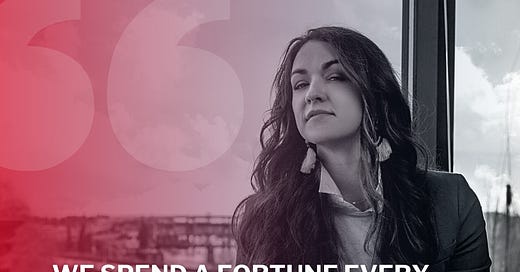🥳 Hey, Kasey here! Welcome to this week’s 🎢 High Growth Founders🎢newsletter. Every email is full of actionable content designed to help you grow your self and your business. I sometimes have affiliate links, but only for products I genuinely love and use myself. If you haven’t already, subscribe to get each issue delivered right to your inbox.👇
Keep reading with a 7-day free trial
Subscribe to Becoming A Better Jones to keep reading this post and get 7 days of free access to the full post archives.


